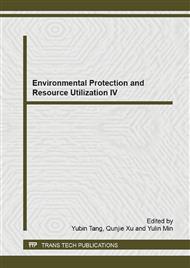p.2610
p.2614
p.2620
p.2624
p.2630
p.2634
p.2637
p.2641
p.2648
Environmental Ethics in the Benefit of Sustainable Development
Abstract:
The value paradigm dominant in the contemporary world is one of the reasons of the global crisis. It is crucial to reconsider the ways to attain sustainable development of humankind. The theme of this article is environmental ethics as a conceptual basis of global sustainable development. The ecological component of sustainable development should maintain the integrity of biological natural systems. Viability of ecosystems on which global stability of the entire biosphere rests is of special importance.
Info:
Periodical:
Pages:
2630-2633
Citation:
Online since:
December 2014
Authors:
Price:
Сopyright:
© 2015 Trans Tech Publications Ltd. All Rights Reserved
Share:
Citation:


